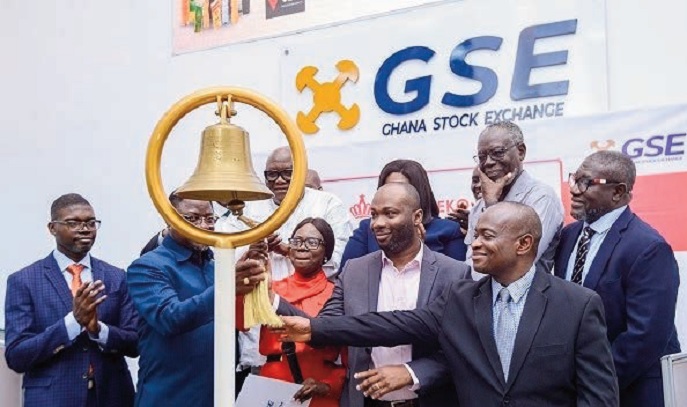

More than 20% of Meredith Corporation's shares are held by ETFs, making the company a microcosm for the debate over passive investment.
- More than 20% of Meredith Corporation's shares are owned by ETFs, with much of that being held in dividend-focused funds.
- This is among the highest percentages in the US market, and serves as a microcosm for the debate around the effect rapidly-growing ETF investment is having on the stock market.
You may not have heard of Meredith Corporation, but its shareholder list highlights a tug-of-war in the stock market.
A little known fact about the $2.4 billion media conglomerate is that well over 20% of its stock is owned by exchange-traded funds (ETFs). And roughly two-thirds of those holdings are concentrated in dividend-based funds, according to data compiled by Credit Suisse.
Sure, Meredith has paid a dividend for at least the past decade, while also quadrupling that shareholder distribution over the same period. But so have a lot of companies, and their ETF ownership is nowhere near the same level.
In fact, Meredith has the second-biggest chunk of passive ownership out of all US companies, Credit Suisse finds. And while some companies have lots of different types of ETFs on the shareholder register, MDP is heavily exposed to a single kind.
For a company like Meredith, there are benefits and drawbacks to the situation it finds itself in. In the event that investors pull money from ETFs, and dividend funds in particular, it could be particularly exposed, given its heavy passive component. But inflows in to dividend ETFs could bump the stock price higher.
Either way, the huge share of passive ownership makes the company a poster child of the passive investment revolution — one that's seen ETFs make up an increasingly large chunk of the stock market.
It's that growing portion of passive holdings that's the focus of what might be the investment community's most hotly-contested debate. Is the growing level of ETF holdings a ticking time bomb, or simply an innocuous development with little downside?
On one side you have active managers who make their living analyzing company fundamentals and placing bets accordingly on single stocks. They argue that the rise of ETFs — which are often used as vehicles for price-insensitive, quantitative-based trading — have made the stock market more homogenous, while also sapping it of volatility. For them, price swings represent opportunity, and their jobs are much harder with the market sitting still.
This group includes hedge fund managers, who have made their distaste for ETFs and passive investment no secret. Jason Karp, who runs $3.4 billion Tourbillon Capital, bemoaned the "tidal wave" of passive inflows and the effect it's had on his portfolios in an August investor letter. Dmirtry Balyasny of $12.6 billion Balyasny Asset Management agrees, and says the rise of ETFs means active investors need to be sharper as the hunt for returns gets more competitive.
It's worth noting, however, that it's in the best interest of hedge fund managers to blame underperformance on external factors like ETFs. They charge higher fees than the indexed funds they dislike so much, and likely feel threatened.
On the other side of the ETF debate are the providers themselves, as well as some Wall Street analysts. Obviously the firms that create and market the funds see no resulting market distortion, and have argued that their presence both provides liquidity and makes markets even more efficient.
From a data perspective, the idea that there are no single-stock investment opportunities also seems far-fetched. About 54% large-cap mutual-fund managers are beating their benchmarks in 2017, the highest-ever success rate at this time of year, according to Bank of America Merrill Lynch data going back to 2009. If they keep up the pace through the end of the quarter, it would be the first year since 2007 that more than half of them outperformed benchmarks.
Credit Suisse analyst Victor Lin is also skeptical of the argument that passive ownership is depriving the stock market of actionable opportunities. He argues that effective stock price discovery can always be achieved, regardless of how many shares are available to trade.
And he doesn't buy into fears that ETFs leave stocks vulnerable to so-called short squeezes — which happen when a sharp spike in a stock results in forced buying by bearish speculators. In his mind, the price-insensitive nature of passively-held shares actually makes short sellers less likely to cover.
While it's difficult to tell which side will ultimately prove to be right, many point toward a future stock market downturn as a potential catalyzing event.
So when will that happen? Well, that's a debate for another day.
More than 20% of Meredith Corporation's shares are held by ETFs, making the company a microcosm for the debate over passive investment. Read Full Story

















Facebook
Twitter
Pinterest
Instagram
Google+
YouTube
LinkedIn
RSS